Choosing the Best Types of Candidates for Your Organization
“People are not your important asset. The right people are.”
– Jim Collins
Sifting through different types of candidates is very important. Selecting the best candidate for any job position can instantly contribute to the success of your organisation.
However, finding the right candidate can be a real task.
Today, we will help you understand the different kinds of candidates that you will come across during hiring procedures. Moreover, you can also learn about how to distinguish one candidate from the next. Of paramount importance, you’ll discover the pros and cons associated with each type of candidate you come across.
What are the different types of candidates?
Hiring candidates represents one of the most pivotal decisions you’ll make as a recruiter. To assist you in this process, we’ll guide you in recognizing various profiles:
Leaders
Leaders exhibit distinct characteristics that set them apart in the workplace. They are visionaries and have the ability to envision the future, take initiative, lead by example, and inspire those around them. Found in leadership positions, managers, or team leads, they play a pivotal role in guiding organisations toward their goals.
Followers
Followers are a vital part of any organisation, possessing distinct characteristics that contribute to a well-functioning team. They prefer clear direction, are known for their reliability, and execute tasks effectively. Typically thriving in structured environments, followers are well-suited to roles that involve supporting leaders’ goals and ensuring that the team’s objectives are met.
Innovators
Innovators are a distinct breed in the professional world, known for their unique characteristics and contributions to organisations. These individuals are creative thinkers who consistently generate new ideas and seek unconventional solutions to complex problems. They shine brightest in roles that demand creativity, problem-solving, and innovation, where their ability to drive fresh ideas can make a significant impact.

Adapters
Adapters are a valuable asset in the ever-evolving corporate landscape, defined by their distinctive characteristics and roles. These candidate types are known for their flexibility, quick ability to adjust to change, and their willingness to embrace new processes. They truly shine in dynamic work environments and play a crucial role in helping organisations adapt to change.

Specialists
Specialists represent a critical component of the workforce, this type of candidate is characterized by their unique characteristics and the specialized roles they fulfill. Organizations highly seek after these individuals for technical or niche positions due to their renowned deep expertise in a specific field or skill.

People Pleasers
People Pleasers, characterised by their unique traits, play a distinctive role in various professional settings. These types of candidates are eager to please, typically averse to confrontation, and driven by the desire for approval. This type of candidate often excel in roles such as customer service and client-facing positions.

Strategists
Strategists, with their distinctive characteristics and roles, shape the future of organizations instrumentally. They are known for their analytical prowess, long-term thinking, and planning expertise, which make them highly effective in strategic planning, forecasting, and decision-making roles.

Team Players
Team Players are the best types of candidates. Their particular brand of distinctive characteristics and roles, cultivate a collaborative work environment. They exhibit a collaborative nature, prioritize group success, and possess the ability to build strong interpersonal relationships. In team-based environments, they excel; moreover, they play a significant role in promoting teamwork and cohesion within organizations.

Problem Solvers
Problem Solvers, characterised by their analytical and logical thinking, play a critical role in addressing complex challenges within organisations. These individuals possess highly developed skills for finding solutions, and they hold great value in roles that involve troubleshooting and process improvement.

Influencers
Influencers, with their persuasive communication skills, are adept at gaining buy-in and support from others, making them indispensable in roles such as sales, marketing, and any position requiring effective persuasion.

Intrapreneurs
Intrapreneurs, with their entrepreneurial mindset, are instrumental in driving internal innovation and new initiatives within organisations. They act as catalysts for change, generating fresh ideas and supporting organisational growth and adaptability.

Task-Oriented Individuals
Task-Oriented Individuals, recognized for their focus on task completion and efficiency, are essential in roles that demand strict task management and productivity. They excel at efficiently completing tasks and meeting goals, showcasing strong time management skills that ensure the consistent accomplishment of important tasks.

Detail-Oriented Candidate
Detail-Oriented Candidates, recognized for their meticulous approach and focus on precision, are invaluable in roles that demand quality control, auditing, and compliance. They excel at being thorough, which helps reduce errors and oversights, ensuring precision in tasks that require meticulous attention to detail.

Inclusive Thinkers
Inclusive Thinkers are known for their commitment to promoting diversity and inclusion while considering various perspectives. They play a vital role in creating inclusive workplace cultures and advancing diversity initiatives.

Find the best candidate at the Indian Diversity Job Fair. Sign up here!!
Participate in the India Diversity Job Fair to connect with a diverse talent pool, including candidates with disabilities, women, LGBTQ+ candidates, war veterans, and women on a career break.
Frequently Asked Questions: FAQ’s
To identify the right candidate, it’s essential to assess their qualifications, skills, and experience in relation to the job requirements. This involves reviewing resumes, conducting interviews, checking references, and possibly using skills assessments.



